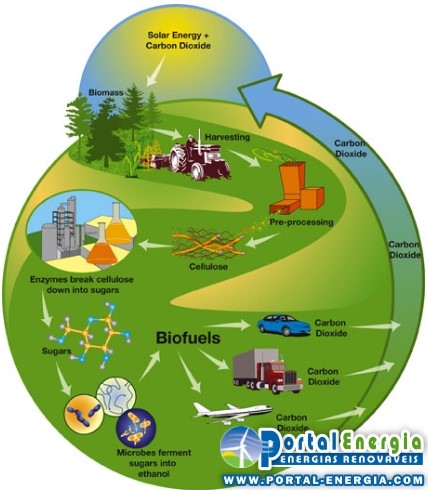Biomass energy is becoming increasingly popular, learn about the main advantages and disadvantages of using this technology.
What is biomass?
Biomass is organic matter, that is, the total mass of living organisms in a given area. This organic matter constitutes an important energy reserve, as it consists mainly of carbohydrates.
Within biomass, we can distinguish some energy sources with great energy potential such as: wood (and its residues), agricultural waste, municipal solid waste, animal waste, food production waste, aquatic plants, and algae.
We provide a summary of the characteristics. Energy production with biomass sourceand also Main advantages and disadvantages In using this resource.
Biomass categories


There are three categories of biomass, solid, liquid and gaseous, learn about their properties:
to solid biomass
Its source is agricultural products and residues (including plant and animal materials), forest residues and the biodegradable part of industrial and urban waste.
to liquid biomass
There are a range of liquid biofuels that can be used, all of which come from so-called “energy crops.” Examples include: BiodieselThey are obtained from rapeseed or sunflower oils; ethanol, resulting from the fermentation of carbohydrates (sugar, starch, cellulose); and methanol, resulting from the synthesis of natural gas.
Gaseous biomass
It is found in agricultural liquid wastes from agricultural industries and urban areas. It is also found in urban solid waste (MSW) landfills.
These residues are the result of anaerobic biodegradation of organic matter, and consist of a mixture of methane and carbon dioxide. These materials are subjected to combustion to generate energy.


Main advantages and disadvantages of biomass energy
Advantages of Biomass Energy
- Biomass is a renewable energy that is available and within our reach almost everywhere;
- It is low-pollution, and does not emit carbon dioxide (according to the natural carbon neutral cycle);
- They are very reliable and responsive to changes in demand.
- Solid biomass is very cheap, and its ash is less harmful to the environment;
- Biomass is more economical than fossil fuels;
- There is less wear and tear on equipment (boilers, furnaces, etc.);
- The use of biomass allows for sustainable land clearing, especially in rural communities.
Disadvantages of biomass energy
- Deforestation, in addition to habitat destruction;
- It has a lower calorific value compared to other fuels, which means that biomass energy is not as efficient as other energy sources;
- Liquid biofuels contribute to acid rain;
- Difficulties in transporting and storing solid biomass;
- Biomass plants generally occupy a large area, mainly due to the space required to store the biomass.
Recommended reading: What is Biomass Energy? All About Biomass




